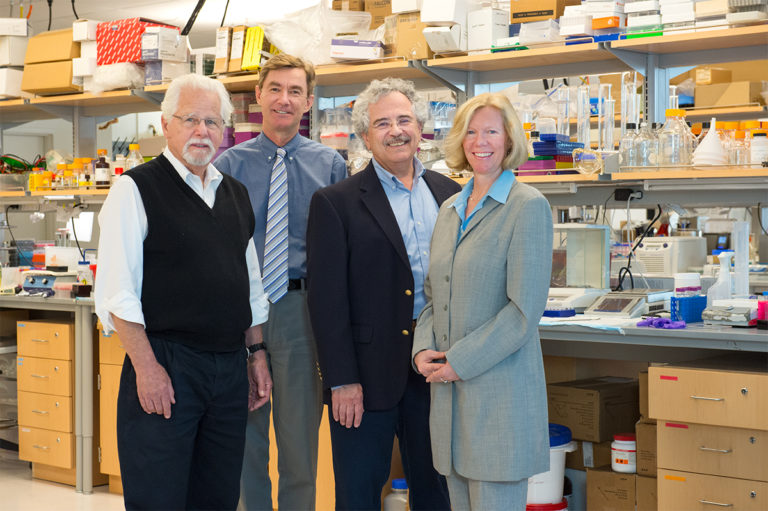A new leadership team is now in place to help guide the future of research at the Arthur A. Dugoni School of Dentistry.
Dr. David Ojcius, chair of the Department of Biomedical Sciences, was recently named to a new role as assistant dean for research. He will continue to serve as department chair in addition to his new duties. Ojcius brings a wide range of research, scholarship and leadership skills to this role.
He completed his baccalaureate and PhD degrees in biophysics at University of California, Berkeley and two postdoctoral fellowships at Harvard and Rockefeller University. He then worked for 13 years at the Institut Pasteur in Paris and the University of Paris-Diderot, where he studied interactions between human pathogens and the host immune system and taught biochemistry, immunology, cell biology and microbiology.
Ojcius recently served as professor, chair and vice provost for academic personnel at University of California, Merced. He has a sustained record of scholarship and acquired $2,300,000 in funded research from the National Institutes of Health (NIH) as principal investigator since returning to the United States in 2004. He has served as a permanent member of the Oral, Dental and Craniofacial Sciences (ODCS) study section of the National Institute of Dental and Craniofacial Research/NIH for the past seven years.
He is also editor-in-chief of Microbes and Infection, a journal published by the Institut Pasteur, and serves on the editorial board of several journals that publish results from research in the biomedical sciences or projects related to sustainable development.
“Our goals are to increase the visibility of scholarship at our school, foster more collaborations between the clinical and basic sciences and align ourselves with national trends in research at dental schools, such as learning to use the oral cavity to diagnose non-oral diseases, “ says Ojcius. “This is an exciting period of growth in research on oral health, which is rich with opportunities for all of us.”
The research leadership team includes several others who are well known among the Dugoni School’s community of researchers.
Dr. Karen Schulze, associate professor in the Department of Preventive and Restorative Dentistry, is serving in a new role as director of clinical research. This position will offer the school enhanced leadership in all forms of clinical research opportunities and partnerships.
Dr. Nejat Düzgünes, professor of Biomedical Sciences, will continue to serve as director for student research, and Dr. Stefan Highsmith, professor of Biomedical Sciences, will continue to serve as research coordinator. Both of these individuals have extensive experience working with students, faculty, staff and the wider research community.
Ojcius says the leadership team is very open to input from the rest of the school about emerging strengths and other areas that could be developed into new research foci.
[pullquote]“This is an exciting period of growth in research on oral health, which is rich with opportunities for all of us.”[/pullquote]
The team looks to closely align its goals with key national trends in research at dental institutions and with the dental school’s new strategic plan. Before the winter break, Dr. Martha Somerman, director of the National Institute of Dental and Craniofacial Research (NIDCR), visited the Dugoni School of Dentistry for the first time. This fruitful visit gave the team an opportunity to hear first-hand about high-level developments at the NIDCR. For example, one goal of the NIDCR is to expand the ability to use the oral cavity to diagnose non-oral diseases. NIDCR has identified other opportunities and trends in which the school hopes to become involved in coming years.
The team plans to increase extramural funding from federal sources and corporate partners, as well as work to leverage the University’s strategic focus on health sciences. “Research has become more complicated with important issues that need active, constant attention such as space allocation, budget management, interest in growing student research, efforts to obtain funding and many other issues,” said Dean Nader Nadershahi ’94. “We are excited to have this leadership team in place to help us navigate new opportunities in this area.”

Left to right: Stefan Highsmith, David Ojicus, Nejat Düzgünes, Karen Schulze